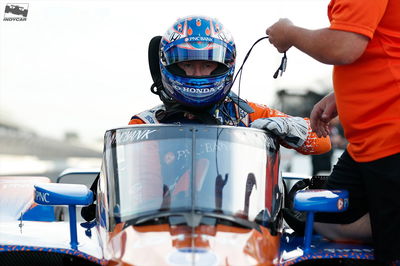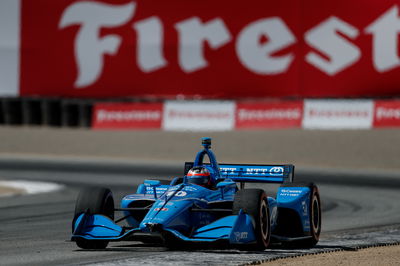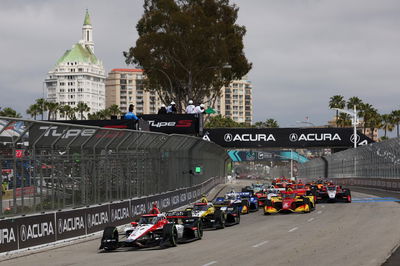IndyCar debuts Aeroscreen on track with Dixon, Power
IndyCar has unveiled the first on-track images from the maiden Aeroscreen test at Indianapolis Motor Speedway.
Both Chip Ganassi Racing’s Scott Dixon and Team Penske’s Will Power were in action testing the new cockpit protection device that will be introduced to all cars from the 2020 NTT IndyCar Series season. The test marks Dixon’s second experience with the device having run a prototype version during a simulator test in July.

IndyCar has unveiled the first on-track images from the maiden Aeroscreen test at Indianapolis Motor Speedway.
Both Chip Ganassi Racing’s Scott Dixon and Team Penske’s Will Power were in action testing the new cockpit protection device that will be introduced to all cars from the 2020 NTT IndyCar Series season. The test marks Dixon’s second experience with the device having run a prototype version during a simulator test in July.
Last May IndyCar chiefs confirmed the Aeroscreen would be used from 2020 developed in partnership with Red Bull Advanced Technologies after evaluating a number of cockpit protection options in recent years as part of a global push in motorsport to raise safety standards, with Formula 1 and its junior series adopting the Halo since 2018.
An Aeroscreen prototype has been tried out in F1, most recently in 2017, but was dismissed due to visibility concerns with the Halo picked as the preferred cockpit protection device instead.
“The enhanced driver safety technology is designed to reduce the risk of injury from flying debris or other objects striking the cockpit area. It consists of a wraparound ballistic screen anchored to the car’s cockpit by a titanium framework," an IndyCar statement confirmed in May.
“When fitted, the device’s load-bearing capability is expected to be 150 kiloNewtons, equivalent to that of the Halo device currently used in Formula 1.”
Both Dixon and Power will complete the Aeroscreen test in Indianapolis assessing its impact on handling, visibility, cockpit temperatures, helmet lift and any other key changes the device has on the performance of their respective cars.
At @IMS this morning, testing the new @IndyCar aeroscreen.
— Will Power (@12WillPower) October 2, 2019
// #INDYCAR / @Team_Penske pic.twitter.com/or780y0ZR8
New screen, who dis? #INDYCAR // @Team_Penske pic.twitter.com/yqBbkq2AUT
— NTT IndyCar Series (@IndyCar) October 2, 2019
New look, same music #INDYCAR // @IMS pic.twitter.com/5dJmh3oT6t
— NTT IndyCar Series (@IndyCar) October 2, 2019











